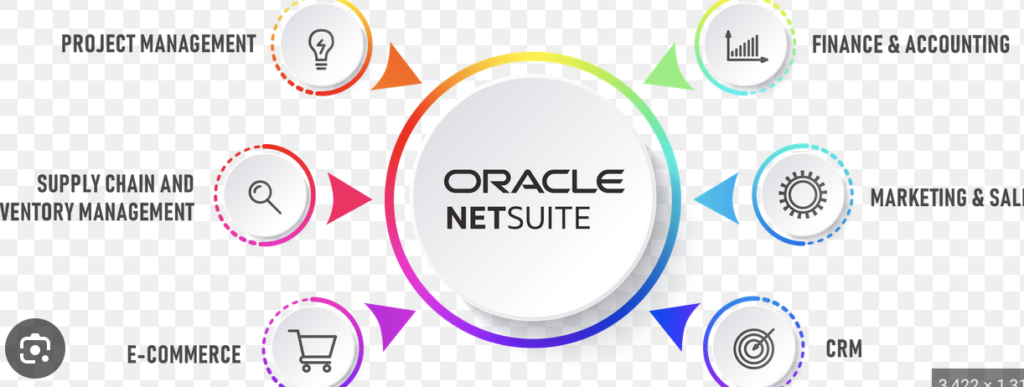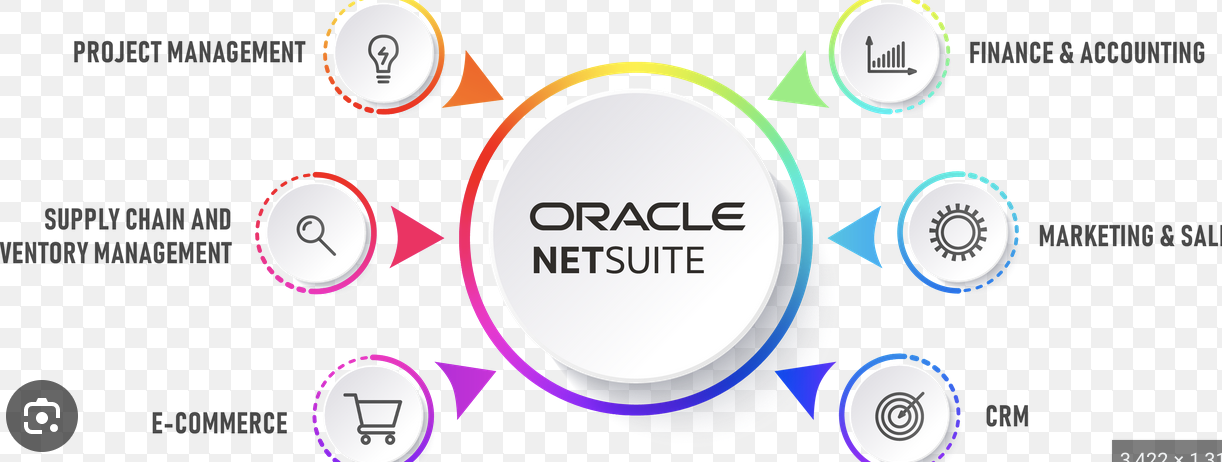Enterprise Resource Planning (ERP) systems have become indispensable in the modern business landscape. These solutions integrate various business processes, facilitating seamless operations and decision-making. In this article, we delve into the world of NetSuite ERP, exploring its features, benefits, and why it has become a game-changer for businesses worldwide.
Understanding NetSuite ERP
At its core, NetSuite ERP is a comprehensive business management suite that covers financial management, customer relationship management (CRM), inventory management, and order management. Unlike traditional ERP systems, NetSuite operates entirely in the cloud, offering real-time data access and analytics.

Benefits of Implementing NetSuite ERP
Increased Efficiency and Productivity
One of the primary advantages of NetSuite ERP is the significant boost in efficiency and productivity. By automating routine tasks and providing a centralized platform for data management, businesses can streamline their operations and focus on strategic initiatives.
Real-time Data Access and Analytics
NetSuite ERP empowers businesses with real-time insights into their performance. The ability to access up-to-date data allows for informed decision-making, helping organizations stay agile in a dynamic business environment.
Cost Savings and Scalability
The cloud-based nature of NetSuite ERP eliminates the need for extensive IT infrastructure, resulting in cost savings. Moreover, its scalable architecture ensures that the system grows with the business, adapting to evolving needs seamlessly.
Key Modules of NetSuite ERP
Financial Management
NetSuite’s financial management module provides a comprehensive suite of tools for managing accounting, financial planning, and reporting. It ensures accurate financial data and compliance with accounting standards.
Customer Relationship Management (CRM)
The CRM module enables businesses to build and maintain strong relationships with customers. It includes features like sales force automation, marketing automation, and customer support.
Inventory Management
Efficiently managing inventory is crucial for businesses. NetSuite’s inventory management module optimizes stock levels, reduces carrying costs, and prevents stockouts.
Order Management
NetSuite’s order management module simplifies the order-to-cash process, improving order accuracy and fulfillment speed.
Customization and Integration
NetSuite ERP offers a high level of customization to meet the unique needs of each business. Additionally, it integrates seamlessly with other applications, creating a unified ecosystem.
User-Friendly Interface
The user-friendly design of NetSuite ERP ensures a smooth onboarding process for employees. The intuitive interface minimizes the learning curve, making it accessible for users at all levels.
Security Measures in NetSuite ERP
Data security is a top priority for NetSuite. The system employs robust encryption methods and access controls to protect sensitive business information from unauthorized access.
Implementation Process
Planning and Assessment
Before implementation, businesses undergo a thorough planning and assessment phase to identify their specific requirements. This ensures a tailored implementation that aligns with organizational goals.
Execution and Training
The execution phase involves configuring the system according to the business’s needs. Training programs are conducted to familiarize users with the new ERP system, ensuring a smooth transition.
Success Stories
Several businesses across diverse industries have experienced remarkable success with NetSuite ERP. Case studies highlight the positive impact on operational efficiency, customer satisfaction, and overall business growth.
Common Challenges and Solutions
Overcoming Implementation Hurdles
While implementing NetSuite ERP, businesses may face challenges such as data migration and system integration. Working closely with experienced consultants helps overcome these hurdles.
Ongoing Support and Troubleshooting
NetSuite provides continuous support, ensuring that businesses receive assistance in troubleshooting issues and making the most of the system’s capabilities.
Future Trends in ERP and NetSuite
As technology evolves, ERP systems, including NetSuite, are expected to embrace innovations like artificial intelligence and machine learning. This adaptability positions NetSuite as a future-proof solution for businesses.
Comparison with Other ERP Systems
Strengths and Weaknesses
NetSuite stands out for its cloud-based architecture, offering flexibility and accessibility. While other ERP systems may have strengths in specific areas, NetSuite’s holistic approach makes it a preferred choice for many businesses.
Why NetSuite Stands Out
The seamless integration of various modules, user-friendly interface, and robust customization options contribute to NetSuite’s prominence in the ERP market.
Cost Considerations
Initial Investment vs Long-term Benefits
While the initial investment in NetSuite ERP may seem significant, the long-term benefits, including cost savings and operational efficiency, far outweigh the initial costs.
Pricing Models and Flexibility
NetSuite offers flexible pricing models to accommodate businesses of all sizes. This ensures that organizations pay for the features and resources they need without unnecessary expenses.
User Reviews and Testimonials
Businesses using NetSuite ERP consistently praise its impact on their operations. User reviews highlight the ease of use, the effectiveness of modules, and the positive contributions to overall business success.
Conclusion
In conclusion, NetSuite ERP emerges as a comprehensive and adaptable solution for businesses seeking efficient and integrated management systems. Its myriad benefits, user-friendly interface, and commitment to security make it a top choice in the competitive ERP landscape.

